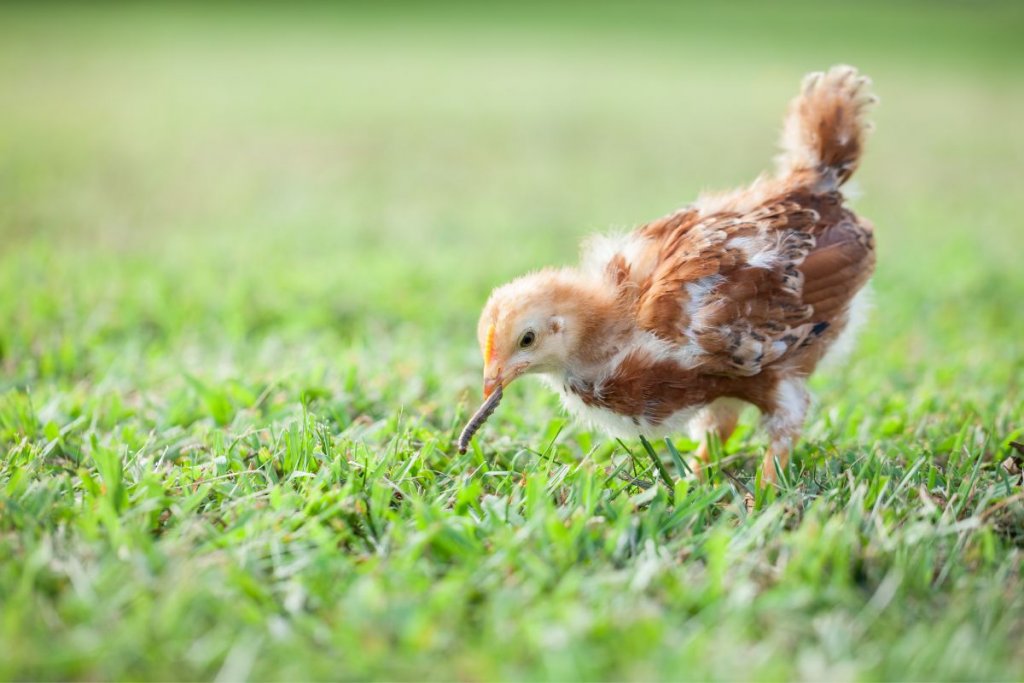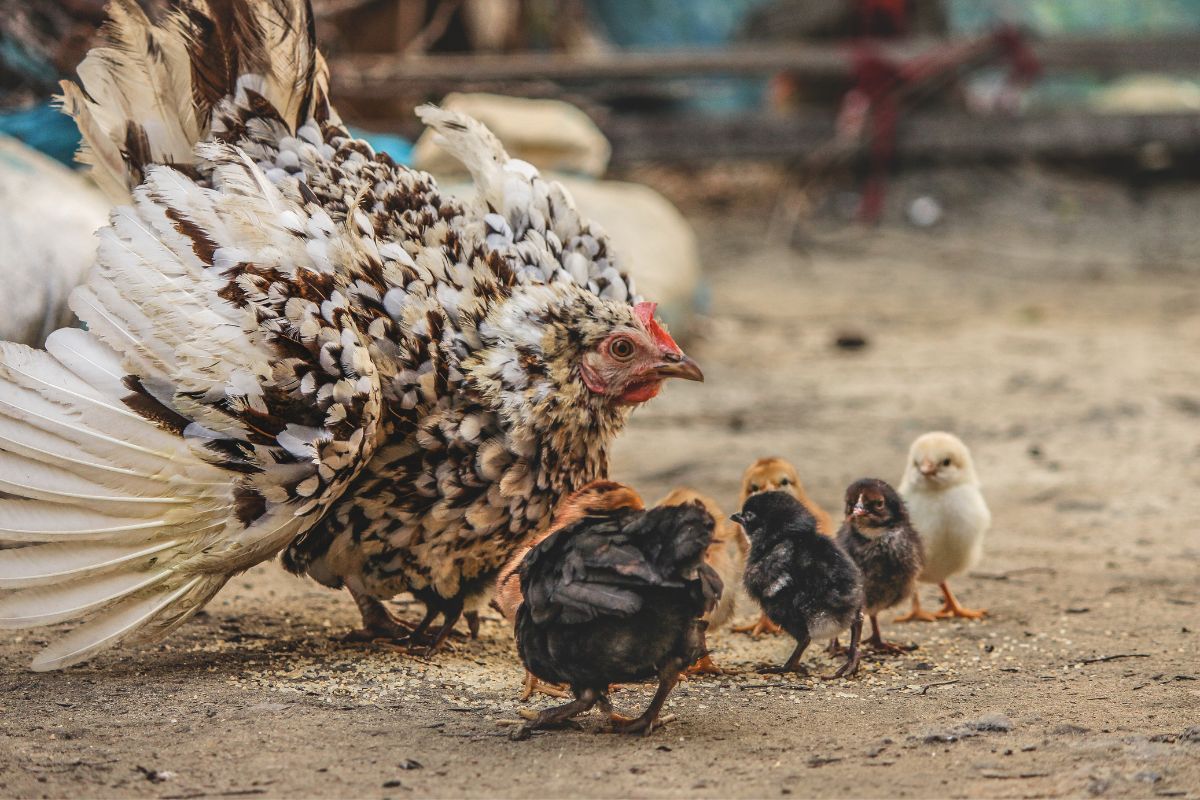Some of the best treats for your baby chicks are berries, bananas, apples, cucumbers, kale and broccoli. They can also eat mealworms and cooked eggs, with chicken grit being necessary for their diets after 2 weeks of age.
Raising chickens is a highly involved process that takes a lot of preparation and research before starting. Many new breeders are faced with the question of what to feed their chicks as they get older.
While baby chickens mostly require diets that are high in protein, there are several other foods that can benefit their health. In this article, let’s take a look at what types of treats are healthy for your chicks to eat.
Table of Contents
Best Chicken Treats
There are many types of fruits and vegetables that are healthy for your chicks to eat:
| Fruits | Fruits such as berries, watermelon, apples, and bananas are a favorite for many chickens and offer a wide variety of vitamins. All fruits (even blueberries) should be cut finely and small enough for your chicks to peck and consume. |
| Veggies | Cucumbers, broccoli, zucchini, kale and other leafy greens are popular vegetables to feed your chickens that are high in nutrients. While it’s easy enough to tear lettuce and kale into small enough pieces, make sure that all other veggies are cut into bite-sized pieces. |
| Protein | Baby chicks will often being excited to see the little mealworms wriggling around for a snack. Mealworms are high in protein (around 20%) which is close to what they are already consuming in their feed, while small crickets also offer a good amount of protein and are just as easy to catch or buy. Another great source of protein is cooked eggs. Whether you’re hard boiling them or scrambling them, it’s important that the eggs are cooked without any oils or seasonings and are finely mashed up or broken into small pieces prior to serving. |

All produce being fed to your flock should be rinsed prior to serving to remove any harmful chemicals.
When Are Chicks Old Enough For Treats?
Before you start thinking about giving your chicks treats, it’s important to first make sure that their daily diet is properly balanced. Baby chicks are small and have delicate digestive systems, so it is usually best to wait two weeks before introducing food other than their feed.
Chicks require a high protein diet to promote early growth. It’s usually recommended that you use a starter feed that has at least 18 percent protein and has the proper amino acids, probiotics, vitamins and minerals necessary to promote digestive health and bone growth.
As the baby chicks continue to grow, their diet will naturally need to change as well. Chickens are usually okay with eating their chick starter feed until they reach 6 weeks, where they’ll need to switch to a grower feed and eventually a layer feed at 20 weeks old.
However, chicks who are mothered by a hen will naturally start foraging around the yard at a young age, so their diets will start to accept healthy treats usually at 2 weeks old. So if you’re raising chicks in a chick brooder, it’s vital to consider how they would behave if they were being raised by their mother.
All Things In Moderation
It’s important that you start with small quantities of treats, which avoids imbalance in their appetites that could cause them to eat less of the food that they really need. Commercial chick feed is usually formulated in a way to make sure that baby chicks eat the best balance of nutrients that they need to survive.
Giving chicks an excessive amount of treats at a young age can increase health issues such as:
- Reduced egg production
- Protein deficiency
- Fatty liver syndrome
- Malformed eggs
- Heart issues and many other conditions.
Risking these conditions by giving your chicks too many treats will affect their health in the long term. Chicken treats should be limited to <5% of their overall diet, so consider only offering one very small treat once per day at most.
The Importance of Grit
Once they’re around 2-3 weeks old, your chicks can start regularly eating snacks that aren’t just their typical high-protein feed. This is when adding a source of chick grit becomes an essential part of daily feeding.
Chick grit is a finely ground mixture of hard materials that will help them break down food. Since chickens don’t have teeth, they are able to break down their food by storing grit in their gizzard. As the gizzard moves, the food a chicken eats is slowly ground by the grit before moving further along in the digestive tract.
Grit is normally made out of either flint stone or oyster shells.
| Oyster shells | Ground down for grit because they have calcium which helps make chicken eggshells strong |
| Flint grit | Usually made with either flint or granite because it can be ground consistently into tiny pebbles that are safe for chickens to have in their bodies |
When using commercially produced grit for chicks, make sure that the grit formula is made for chicks.
| Chick grit | 2 to 8 weeks old |
| Chicken grit | 8 weeks old until end of life |
Chicks that are free range will naturally gain grit as they begin to forage.
Chick Foods To Avoid
While there is a wide variety of foods that are safe for chickens to eat, there are also some that you might want to avoid, especially when feeding baby chicks.
Chocolate and Coffee
Chocolate is one food that should absolutely not be fed to your chickens. It contains both caffeine and theobromine which are toxic to many animals, including chickens. Similar to chocolate, coffee grounds should also not be tossed to your flock because of coffee’s high amount of caffeine.
Raw and Dried Beans
Another toxic food that might not immediately come to mind is raw or dried beans. Consuming dried beans is known to cause health issues in humans, and can be extremely dangerous and even fatal for chickens to consume.
Beans have a toxin known as phytohaemagglutinin which can cause their organs to shut down. Even if an adult chicken eats just a few beans, they will likely rapidly grow ill and die in a very short period of time, so avoid feeding your chickens beans altogether.
Moldy Foods
Foods that are expired or moldy might be okay for your compost pile, but should never be fed as scraps to your chickens. Rotten food is likely to cause your chickens to get sick, and even potentially lead to more serious health conditions.
In general, you can use “If I wouldn’t eat that, my chickens shouldn’t either” as a rule of thumb.
We have written an extensive guide on other feeds to avoid here:
Feeding your chicks a well-balanced diet is important, and supplementing it occasionally with healthy treats is a fun way of interacting with your flock while ensuring they’ll grow more resilient over time.

